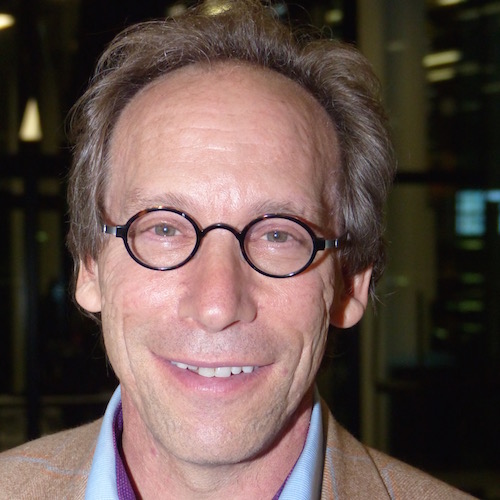 Evolution
Evolution
 Faith & Science
Faith & Science
 Intelligent Design
Intelligent Design
In The New Yorker, a Rant from Lawrence Krauss Makes "Militant Atheism" Sound Pretty Good

Turning from Richard Dawkins, here is another scientific atheist who doesn’t know when to stick to science and withstand the temptation to lecture on religion, politics, the law, and more. In The New Yorker, cosmologist Lawrence Krauss executes a weird pivot on the theme of Kim Davis to argue that “All Scientists Should Be Militant Atheists.”
Whatever your feelings about her, I’m not aware of anything the jailed-then-freed Kentucky county clerk has said that seeks to casts her views on marriage in scientific terms. Dr. Krauss’s logic seems to be: Davis thinks her religious beliefs are sacred and should be respected even if they conflict with the law. Scientists don’t think any ideas are “sacred” but should instead be questioned vigorously. For that they are called “atheists.” Well, says Krauss, fine let’s embrace the term.
If that is what causes someone to be called a militant atheist, then no scientist should be ashamed of the label.
This boggles my mind. Listen to what he says about the scientific demand for no-holds-barred questioning. Given the predilection among scientific materialists for censorship and fleeing from debate, does he not see the irony?
In science, of course, the very word “sacred” is profane. No ideas, religious or otherwise, get a free pass. The notion that some idea or concept is beyond question or attack is anathema to the entire scientific undertaking. This commitment to open questioning is deeply tied to the fact that science is an atheistic enterprise. “My practice as a scientist is atheistic,” the biologist J.B.S. Haldane wrote, in 1934. “That is to say, when I set up an experiment I assume that no god, angel, or devil is going to interfere with its course and this assumption has been justified by such success as I have achieved in my professional career.” It’s ironic, really, that so many people are fixated on the relationship between science and religion: basically, there isn’t one. In my more than thirty years as a practicing physicist, I have never heard the word “God” mentioned in a scientific meeting. Belief or nonbelief in God is irrelevant to our understanding of the workings of nature — just as it’s irrelevant to the question of whether or not citizens are obligated to follow the law.
I suppose this would mean that when it comes to the evolution controversy, intelligent design advocates are the “atheists” in the fight and ID is an “atheistic enterprise.” After all, it’s we who insist that evolutionary theory be treated like any ordinary scientific idea, denied its accustomed “free pass” and subject to doubt down to the roots of its most basic assumptions. It’s we who insist that theological musings (“If there were a God, and if I were that God, I sure wouldn’t do things this way”) be excluded from scientific determinations. It’s we who demand that in weighing scientific evidence, “belief or nonbelief in God is irrelevant,” while our opponents present belief as a test of scientific credibility. It’s we who want to consider science free of preconceptions, religious or otherwise, while our opposites, in biology and cosmology, seem hyper-focused on finding a way to escape conclusions that conflict with their ideas about religion. That’s what the whole concept of a “multiverse” is all about.
Reading Krauss, I find myself curiously drawn to what he calls “atheism”:
Because science holds that no idea is sacred, it’s inevitable that it draws people away from religion.
Because evolutionary skepticism holds no idea about biological origins to be sacred or beyond doubt, it inevitably draws some people away from a dogmatic insistence that Charles Darwin had it all figured out.
Ultimately, when we hesitate to openly question beliefs because we don’t want to risk offense, questioning itself becomes taboo. It is here that the imperative for scientists to speak out seems to me to be most urgent.
Questioning evolutionary dogma is indeed largely “taboo” in prestige science, scholarship, and education. As we have said again and again, it’s urgently imperative for scientists and other responsible, thoughtful citizens to speak out for academic freedom.
Whenever scientific claims are presented as unquestionable, they undermine science.
Exactly right, which is why science as a quest for truth demands that competing ideas be heard and debated, not suppressed.
What does any of this have to do with Kim Davis? Nothing. What were the editors of The New Yorker thinking? I have no idea.
Image: Lawrence Krauss, by Jvangiel (Own work) [CC BY-SA 3.0], via Wikimedia Commons.
